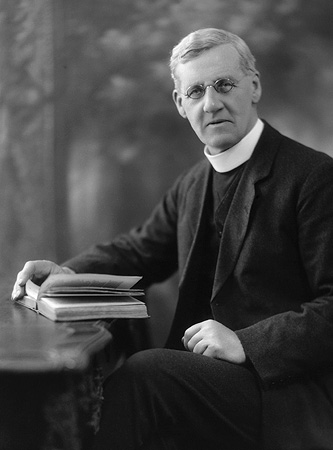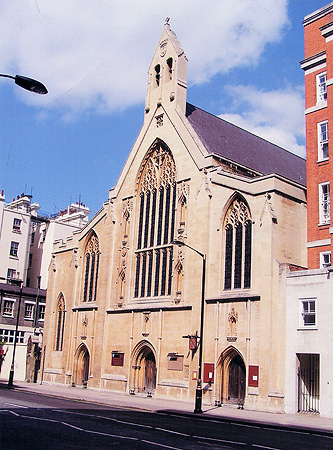Forty years have passed since their adventure in Spanish Gold (1908). J.J. Meldon and Major Kent go out for another adventure on the same island off the west coast of Ireland in A Sea Battle (1948). Their aim this time is to expel other types of villains from this small island and to recover peace for the inhabitants.
Since Meldon was awarded the rectorship of a Lancashire town for his achievement in Spanish Gold, he has come home to Ballymoy every summer to spend his one-month vacation with Major Kent at Portsmouth Lodge. The summer after World War Ⅱis over, a foreigner comes to this town in a Rolls-Royce and puts himself up at a hotel.
This strange foreigner says that he wants to hire a boat because he intends to go to the small island which was the setting of Spanish Gold. Meldon and Kent are suspicious of what he talks about. The foreigner tells a lie saying that he will shoot a movie of the novel, but Meldon and Kent are not deceived. This foreigner’s boat is wrecked while sailing to the island and he is rescued by Meldon and Kent who chases him in their yacht. After landing on the island, he is joined by two other foreigners. Meldon sees Father Mulcrone again. They have cherished their friendship since they fought together to take back the gold from the two villains in Spanish Gold.
Father Mulcrone talks about a letter to Meldon which he has received from his bishop. The letter uncovers the fact that certain German war criminals are escaping to the west of Ireland. Then Meldon learns that these three foreigners are heads of the German Gestapo escaping from a war prison in Sweden to hide themselves on this island. They point a gun at Meldon, threatening to shoot him unless he grants their secret stay on the island. However Meldon ignores their threat and behaves as bravely as he did in Spanish Gold, without fearing anyone but God. The Germans say to Meldon, “We have business to discuss. Serious business.” Then Meldon answers, “Nothing can possibly be more serious than theology.” Meldon's reply reveals Birmingham’s deep faith in Christianity.
Meldon, without being frightened of the gun still pointed at him, refers to his bosom friend, Major Kent, and says, “And he has no high opinion of you, as I told you. He’ll certainly make things unpleasant for you if you shoot me. And as for your living on this island, that was out of the question in any case, but if you shoot me or otherwise bully me and the Major hears of it, you won’t live long anywhere. Here or anywhere else.” (p.195)
These words show how deeply Meldon respects Major Kent, though he always criticizes the Major’s serious and skeptical disposition. While Meldon gave a great performance in taking back the gold from the two villains in Spanish Gold, Major Kent plays a central role in expelling the Germans from this island in A Sea Battle. At his command, the islanders bring their fishing and farming implements as their weapons, form a fleet of battleships, besiege the Germans, and rescue Meldon.
Birmingham’s faith in Christianity is also noticeable in his treatment of the Germans. Meldon, Kent and Father Mulcrone set them free and let them go out of sight in their boat instead of handing them to the justice. This represents the Christian virtues which Birmingham praises in The Wisdom of the Desert (1904): “returning good for evil” and “charity to sinners”.
Another remarkable representation of Birmingham’s faith in Christianity is that of the lasting friendship of Meldon and Major Kent. While Meldon is a cheerful and optimistic Irishman with no political conviction, Major Kent is a rigid and skeptical Englishman with a strong faith in Unionism. Despite their contrasting dispositions and different creeds, they have maintained their friendship for more than forty years. They are endowed with “love and gentleness” like the prophet Isaiah whom Birmingham praises.
In Canon Hannay As I Knew Him (1951), Hilda Martindale recounts the episodes which show Birmingham’s sense of humor and deep faith in Christianity.
When she was in trouble at work in Ireland, Birmingham wrote to her, “I am sorry that you are despondent over another case. I do not suppose it is easy to do good anywhere. It is certainly desperately hard in Ireland. My own experience is that the solitary hope we have of avoiding actual despair is a resolute determination to see the comic side of things. We all of us fail again and again and if we didn’t extract food for laughter out of failure we should simply go under.” (p.5) These words sound true and convincing because they are voiced by Birmingham who has overcome a lot of difficulties and hardships.
Even when London underwent devastating air raids by the German Air Force during World War Ⅱ, Birmingham was giving services at his church every Sunday. One Sunday the church was filled with debris and dust, for the building close to it was demolished by an attack. Birmingham said to the congregation, “We will say altogether the General Thanksgiving and then disperse, otherwise we shall all get pneumonia.” (pp.15-16) This reveals that Birmingham’s sense of humor was linked with his Christian faith in actuality.
 Birmingham in 1927
Birmingham in 1927 Holy Trinity Church in South Kensington, London
Holy Trinity Church in South Kensington, LondonIn 1946, Birmingham was awarded the degree of honorary doctor of Literature for his achievement as a novelist by Trinity College Dublin from which he graduated. After that he remained still active as a novelist and as a clergyman, and ended his life of eighty-four years and seven months on February 2, 1950. His sixty-first novel, Two Scamps (1950), was published after his death.
| << BACK | NEXT >> |